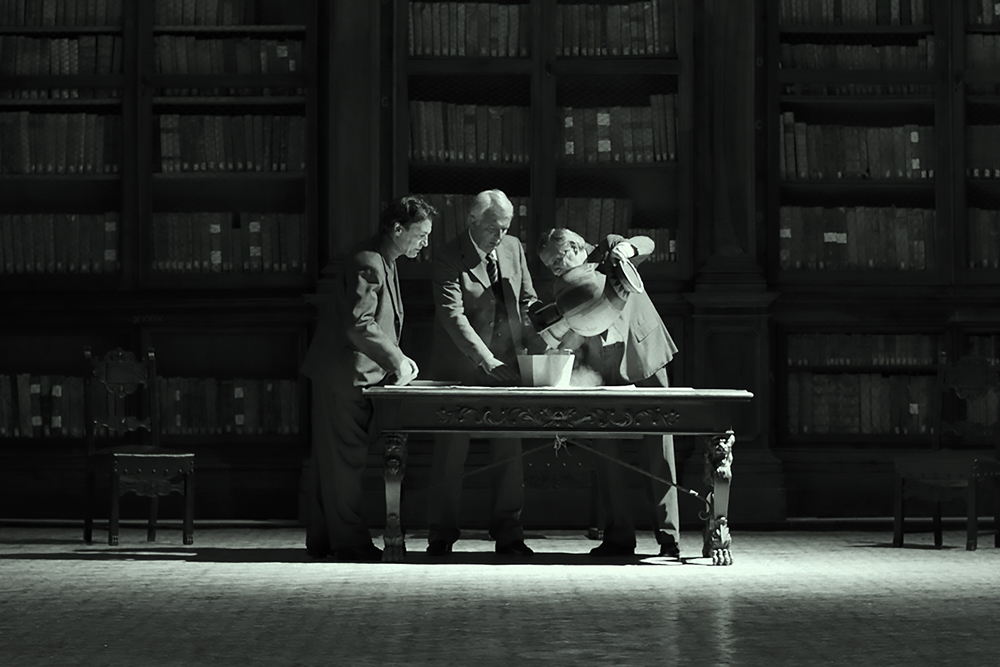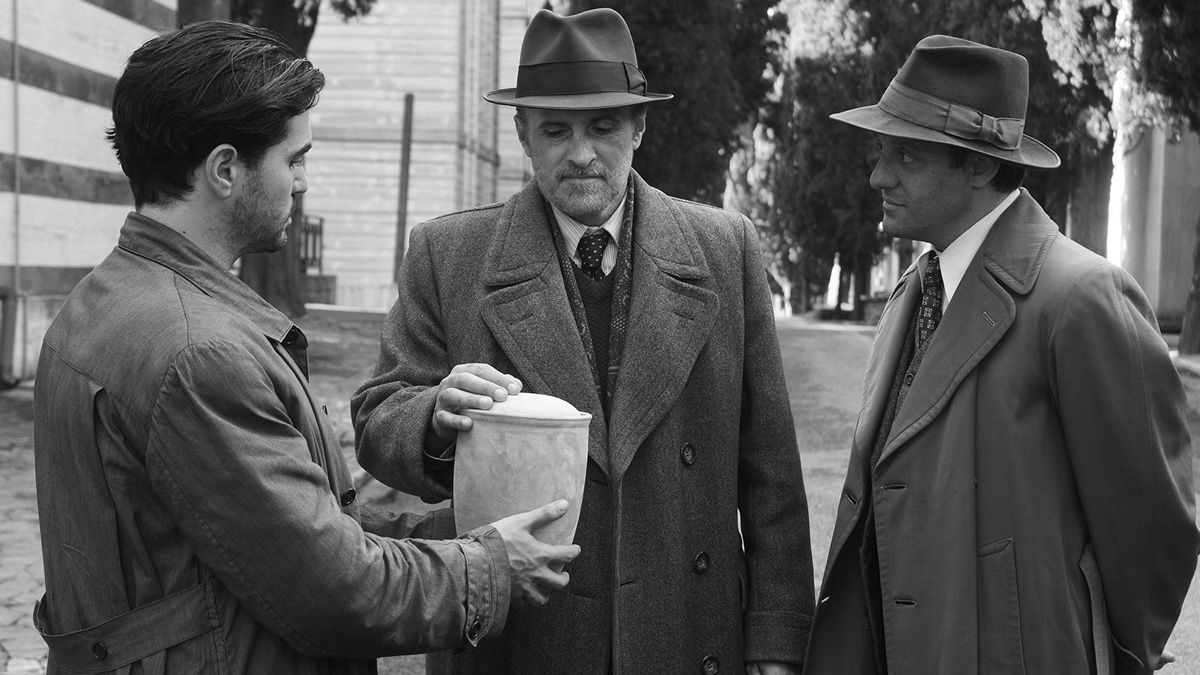2023.06.30
“Leonora addio” Synopsis
The main character of the movie is the ``ashes'' of Nobel Prize-winning author Pirandello, who died in 1936. When he died, he left a will stating that his ashes would go to his hometown of Sicily, but the dictator at the time, Mussolini, did not release the writer's ashes from Rome. After the war, his ashes were finally returned to his hometown. However, troubles occur one after another, such as being refused boarding on an American military plane and the urn containing the ashes suddenly disappearing. Will the ashes reach Sicily? !
Index
The resonance of two (three) writers
A movie that feels like a one-liner by a maestro. While it is light and humorous, it also carries a heavy soul that makes it difficult to know how to respond to it. Leonora addio(22), by aging filmmaker Paolo Taviani, is a film full of blank spaces. The film's straightforwardness and dexterity in story and screen composition are things that young filmmakers would not be able to capture. Like the films of Manoel de Oliveira, who continued to make films even after he was over 100 years old. Or like the recent Clint Eastwood movies. I am confident in how this power is released. Rather, the lack of power is becoming a threat. Like a great dancer who can change the flow of air with just the slightest movement of his hands. This film is the first masterpiece that Paolo Taviani, now 91 years old, shot under his own name after losing his older brother Vittorio. It is hard to believe that it is a coincidence that the painting depicts ``ashes'' that are physically light but mentally heavy.

“Leonora addio” © Umberto Montiroli
The ashes of Nobel Prize in Literature winner Luigi Pirandello travel. Pirandello leaves a will to have his ashes moved to his hometown of Sicily. Pirandello's will succeeds in resisting Mussolini's political exploitation. However, Mussolini did not release the ashes from Rome. The ashes are unable to advance the ``story'' as the writer had envisioned, and end up patiently waiting for the end of the fascist regime and the end of the war.
No great artist can control the afterlife. Ashes and graves are probably for the living. Those left behind give value to the ashes and graves. Ashes can't say anything. It's the same as asking something to the blue sky in Sicily and getting no response. The visions of the "end of life" envisioned by two writers, Pirandello and Paolo Taviani, resonate without directly intersecting. This work is dedicated to his brother Vittorio, who passed away in 2018.
A running light called a train


